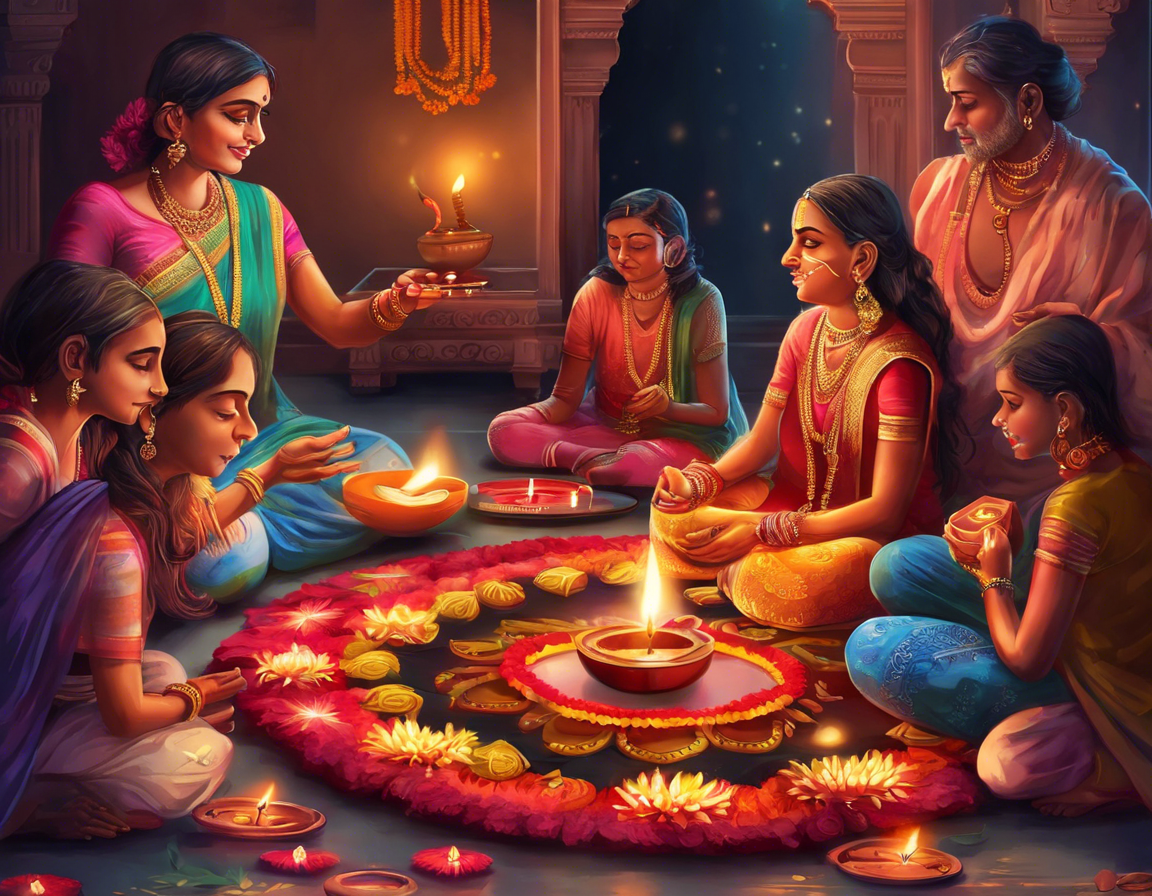Diwali, also known as the Festival of Lights, is one of the most significant Hindu festivals celebrated across the world. It symbolizes the victory of light over darkness and good over evil. The festival spans across five days, with each day holding its own significance and rituals. One of the essential aspects of Diwali celebrations is the Diwali Puja. Performing the Diwali Puja at the right time is crucial for the blessings and prosperity of the household. In this comprehensive guide, we will delve into the significance of Diwali Puja, the auspicious timings for performing the puja in 2023, the rituals involved, and frequently asked questions related to Diwali Puja time.
Significance of Diwali Puja
Diwali Puja holds immense significance in Hindu culture. It is believed that performing the Puja on this auspicious day brings prosperity, good fortune, and blessings from the Goddess Lakshmi, the goddess of wealth and prosperity. The Puja is also performed to seek the blessings of Lord Ganesha, the remover of obstacles. The ritual involves cleaning and decorating the house, lighting oil lamps, offering prayers, and seeking divine blessings for happiness and success.
Auspicious Timings for Diwali Puja in 2023
Diwali falls on the Amavasya Tithi (new moon day) of the Hindu lunar month of Kartik. The timing of the Puja is crucial and is determined based on the Amavasya Tithi and the Pradosh Kaal (auspicious time). In 2023, the auspicious timings for Diwali Puja are as follows:
- Diwali Puja Muhurat: 5:36 PM to 7:24 PM
- Pradosh Kaal: 5:50 PM to 8:27 PM
- Vrishabha Kaal: 5:36 PM to 7:24 PM
It is recommended to perform the Puja during the Muhurat to attain maximum blessings and positivity.
Rituals Involved in Diwali Puja
The Diwali Puja involves several rituals that are performed with devotion and faith. Some of the key rituals include:
-
Cleaning the House: Thoroughly clean and decorate the house to welcome the goddess of wealth, Goddess Lakshmi.
-
Setting Up the Altar: Create a sacred space or altar for the Puja with idols or images of Lord Ganesha and Goddess Lakshmi.
-
Lighting Oil Lamps: Light oil lamps or diyas to symbolize the victory of light over darkness.
-
Offerings: Offer flowers, incense, sweets, fruits, and other traditional items as a symbol of devotion.
-
Chanting Mantras: Recite sacred mantras and prayers to invoke the blessings of the deities.
-
Arti: Perform the Arti ceremony by moving a lit lamp in a circular motion in front of the deities.
-
Distribution of Prasad: Distribute sweets and fruits as Prasad to family members and guests.
-
Firecrackers: End the celebration with the bursting of firecrackers to ward off evil spirits.
Frequently Asked Questions (FAQs)
1. What is the significance of Diwali Puja?
Diwali Puja is significant as it invokes the blessings of Goddess Lakshmi and Lord Ganesha for wealth, prosperity, and happiness.
2. Can Diwali Puja be performed alone?
Yes, Diwali Puja can be performed alone or with family members. It is recommended to perform the Puja with devotion and sincerity.
3. Are there specific items required for Diwali Puja?
Items required for Diwali Puja include idols or images of deities, oil lamps, incense, flowers, sweets, fruits, and offerings.
4. Can the Diwali Puja timings vary based on location?
Yes, the timings for Diwali Puja may vary based on the location and city. It is advisable to consult a Panchang or a religious authority for accurate timings.
5. Is fasting necessary for Diwali Puja?
Fasting is not mandatory for Diwali Puja, but some people choose to observe a fast as a form of devotion and purification.
6. Can children participate in Diwali Puja?
Children can participate in Diwali Puja by assisting in the rituals, offering prayers, and seeking blessings from the deities.
7. How long does Diwali Puja typically last?
Diwali Puja can last anywhere from 1 to 2 hours, depending on the customs and traditions followed by the family.
8. What is the significance of lighting oil lamps during Diwali Puja?
Lighting oil lamps during Diwali Puja symbolizes the dispelling of darkness and the ushering in of light, positivity, and prosperity in the household.
9. Can non-Hindus participate in Diwali Puja?
Non-Hindus are welcome to participate in Diwali Puja to experience the cultural and spiritual significance of the festival.
10. How can one continue the blessings received from Diwali Puja throughout the year?
To continue the blessings received from Diwali Puja, one can practice gratitude, kindness, and generosity, as well as continue to seek spiritual growth and enlightenment.
In conclusion, Diwali Puja is a sacred and auspicious ritual that holds immense significance in Hindu culture. By performing the Puja with sincerity, devotion, and faith, one can invite prosperity, happiness, and blessings into their lives. Following the auspicious timings and rituals enhances the positive energies and blessings received during Diwali. May this Diwali bring joy, prosperity, and success to all!
